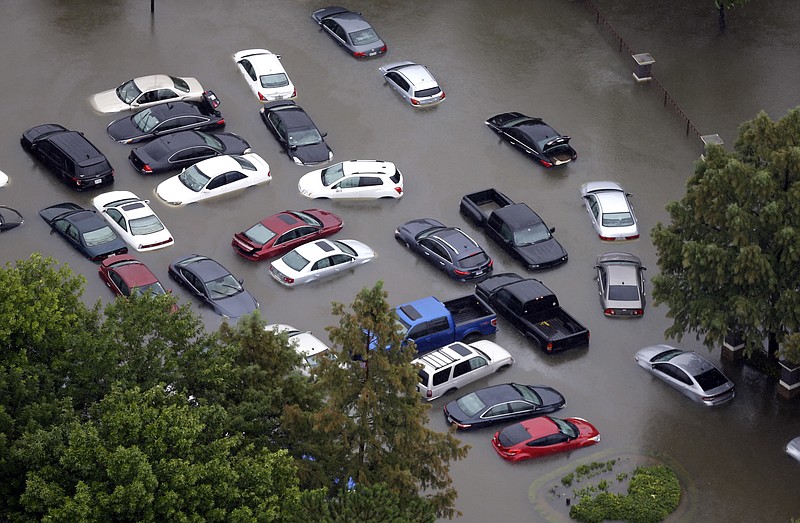Flooding from recent storms, especially Hurricane Ida, has left a path of damage across several states. It's more than homes and businesses that may have been significantly affected - rising waters can create significant damage to vehicles as well. Flood-damaged automobiles can show up for sale at auto auctions, used car businesses, and in classified ads. Unsuspecting consumers may not see the signs of the damage, which are likely covered up by fresh upholstery, new carpeting, and bargain prices.
Once the owners of damaged cars settle with the insurance companies, the vehicles are sometimes refurbished and resold. In some cases, a middleman buyer will purchase these vehicles with the intention of hiding a car's history as a flood-damaged vehicle through a process known as "title washing."
Among many possible mechanical problems faced by flooded cars, corrosion can take years to eventually surface, when it can cause electrical and mechanical problems. By the time the issues become apparent, the seller is likely gone, and the new owner is left with an unreliable vehicle.
Your Better Business Bureau strongly recommends that used car buyers be cautious of unscrupulous businesses and individuals who may try to sell a flood-damaged car as a standard secondhand car without revealing the vehicle's history.
BBB also suggests the following checklist to help you look for signs that a vehicle has experienced damage from floods:
Ask to see the title. Check the date and place of transfer verifying where the car came from. If the title is stamped "salvage" or arrived from a recently flood-damaged state, ask questions. If the title shows a code rather than words for the car's status check to see what the code represents. Consider purchasing a vehicle history report of the automobile, which includes information regarding if the car has ever been tagged as "salvage" or "flood damaged" in any state. Keep in mind that a vehicle's flood history may take 30 days or longer to post on reporting sites.
Research the dealer The Tennessee Motor Vehicle Commission recommends that individuals purchase motor vehicles from a licensed motor vehicle dealer. In addition, look up BBB's business reports to get BBB ratings and customer experience histories on local dealers at BBB.org.
Get a vehicle history report from a database service. The National Insurance Crime Bureau's (NICB) free database lists flood damage and other information. But take note: NICB reports are only helpful if the car was insured. If the owner of an uninsured flood-damaged car tries to sell it on the open market and you're the buyer, you may never know there's a problem until things like the electrical system go bad. As mentioned before, also consider that it can take 30 days or more before an automobile's flood history appears on a report.
Carefully check the dashboard. Examine all gauges to make sure they are accurate, and there are no signs of water. Look for indications that the dashboard may have been removed at some point.
Check the electronic components. Test the lights, windshield wipers, turn signals, radio, heater, and air conditioner several times to make sure they work. Also, carefully flex some wires under the dash to see if they bend or crack, since wet wires become brittle upon drying.
Check the interior spaces. Look in the trunk, glove compartment, and beneath the seats and dash for signs of mud, rust, or water damage. Check for open drainage holes in the bottom of the vehicle.
Check the condition of the fabrics. Look for discolored, faded or mildewed upholstery, and carpeting. Recently shampooed carpets may be cause for concern. Carpeting that has been replaced may fit too loosely or may not match the interior color.
Remember to check under the hood. Look for standing water, mud or grit in the spare tire wheel well or around the engine compartment under the hood.
Do a smell test. A heavy aroma of cleaners and disinfectants is a sign there may be a mold or odor problem
Get an inspection before buying a used car. Before buying any used car, BBB highly recommends that you have a pre-purchase inspection done by a trusted mechanic.
BBB offers additional information, including tips on buying used cars, at bbb.org. BBB also offers lists of companies that are committed to BBB Accreditation Standards at bbb.org.
You can also contact your BBB with questions or to check on the credibility of a company at 423-266-6144.
Michele Mason is president of the Better Business Bureau in Chattanooga.
